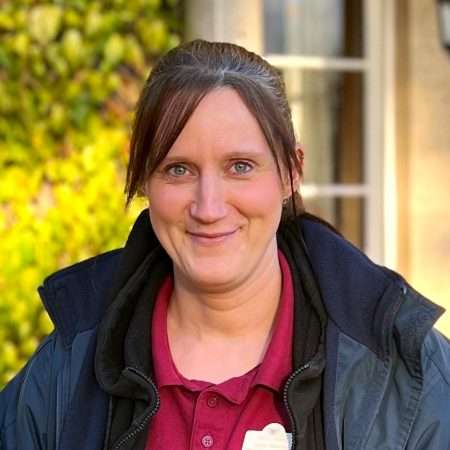About | History | Photo & Video Gallery | Success | Recovery Club
Rehabilitation begins with people, and our most unique resource is our staff of caring and deeply committed individuals. Below are some of the team and distinguished specialists you will meet when you come here.
Our multidisciplinary team are passionate about their work; we have a high staff retention rate the majority of our team have been with us for five years or longer, and some are in recovery themselves.
Senior Management


Co-Chair & Co-Founder
Dr McCann co-founded with her husband Peter McCann Clouds House, an addiction centre in Wiltshire, where she established the detoxification and treatment programme. She was responsible for directing all treatment services, including medical, nursing and therapeutic; she pioneered the use of Clonidine for detoxification from opiates in the UK.
In 1988 Dr McCann moved with her husband to Scotland, where they founded Castle Craig Hospital in Peeblesshire.
There she established the treatment programme and continues to focus on the development of therapies for the treatment of addiction and the direction and governance of the hospital.
Dr McCann also acted for a period as Medical Director for Castle Craig’s clinics in the Netherlands – which provide assessment, continuing care and other outpatient services. Until 2021 Dr McCann was the CEO of Castle Craig.
Dr McCann has presented at a number of medical conferences in the UK. She is committed to promoting and sharing best practices in the addiction field.
Dr McCann completed a degree in medicine at University College Dublin and worked in hospitals in the Republic of Ireland and Northern Ireland.
Personal Interests: As well as raising four children, Dr McCann has volunteered for the Order of Malta for the last 15 years at the annual pilgrimage of sick and disabled people to Lourdes. She is a keen (albeit occasional) bridge player, a dog lover and enjoys walking in the hills surrounding Castle Craig.

Dominic is CEO of Castle Craig Hospital and Smarmore Castle Private Clinic Ireland, and a Director of Stockholms Beroendeklinik and CATCH Recovery, London.
A member of the McCann family who founded Castle Craig, Dominic joined Castle Craig in 2009 as Development Manager and Director.
In this role, Dominic has overseen the enhancement of Castle Craig’s services, and the launch of new clinics in Ireland, Sweden and London. In 2018 he led a successful campaign to highlight abuses of the Google Ads platform and other unethical business practices in the sector. Dominic was also the Chief Executive of Smarmore Castle from 2017 to 2019.
Dominic previously spent several years working with charities in the UK, Eastern Europe and Africa.
This work encompassed child-care, learning disabilities, disaster relief and development, NGO resource building and primary healthcare services.


Dr Peter McCann, MBBS, MSc, MRCPsych, is the Medical Director of Castle Craig. He is a Consultant Psychiatrist, specialising in addictions with experience of treatment both in the United States and the United Kingdom.
Dr McCann previously worked as a Senior House Officer at the Hepatology Unit of St George’s Hospital, London, before moving to the U.S and completing a Residency Training program in combined Internal Medicine and Psychiatry at Duke University Hospital, North Carolina, serving as Chief Resident in his final year in Addiction Psychiatry. He worked previously for NHS Lothian in Edinburgh.
He obtained a Bachelor of Medicine and Surgery (Medical School degree) and a Master’s of Science in Neuroscience (Distinction) at King’s College London. He completed his foundation training in the South Thames Deanery working at Guy’s and St Thomas’ Hospitals.
He is on the GMC Specialist Register for General Psychiatry in the U.K and is also U.S. Board certified in both General Psychiatry and Internal Medicine. He is BUPA Registered.

Daniel is Castle Health Group’s Chief Financial Officer and Board Member. His role includes guiding the overarching Finance, IT, and HR strategies across the group and its affiliated entities, namely Castle Craig Hospital, Smarmore Castle, Stockholms Beroendeklinik, and Catch Recovery London.
Daniel’s expertise extends beyond his accounting and finance qualifications. He also has an MBA Degree, and although Daniel’s professional career began in accounting, he also transitioned into sales, strategic marketing, and business management for a brief period. However, he soon returned to the finance sector. and throughout his career, he has had extensive experience within the healthcare and pharmaceutical industry.
Daniel has assumed various influential roles throughout his tenure, including CFO, Finance Director, Managing Director, Business Consultant, and Business Manager, both within multinational corporations and SME organisations.
MBA, CIMA, CFBM™, Dip.Bus.Man

Victoria McCann is Communications Director at Castle Craig and Smarmore Castle Private Clinic, Ireland and is responsible for overseeing the communications and marketing department. Victoria is also a Director of Stockholms Beroendeklinik and CATCH Recovery London.
Since 2007 Victoria has managed marketing and communications projects and website development for Castle Craig. Victoria is also involved in elements of the treatment programme and has been instrumental in establishing the Executive Programme, the Family Recovery Workshop, the PRO Pathway and design updates to educational literature and presentations at Castle Craig.
Victoria studied English Literature at the University of Newcastle upon Tyne and has an MSc in Public Relations from Stirling University. Victoria started her career in international PR agencies in London and has lived and worked in London, Spain and Switzerland.
“As a member of the McCann family who founded Castle Craig, it gives me such great pleasure to remain a part of this wonderful organisation that has turned so many lives around. I see so much positivity among patients and alumni and among the staff. My aim is to spread the word about the amazing transformations that take place when someone is in recovery from addiction.”
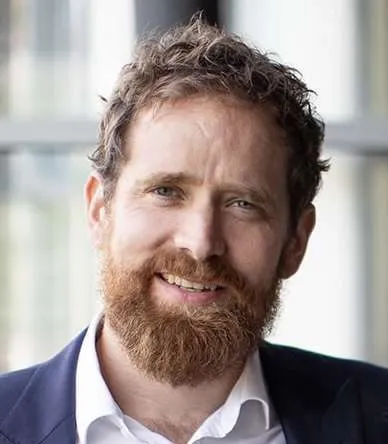

Jamie oversees the Help Centre at Castle Health and directs the outpatient services at CATCH Recovery which includes continuing care provision and outpatient therapy across the UK.
Jamie’s journey to recovery began over a decade ago. His experience led him to become a prominent figure in the field of addiction treatment and advocate for reform in the prison system. With a background in media, Jamie’s passion for helping others saw him retrain as a psychotherapist, dedicating his career to mental health and supporting those impacted by addiction.
His experience includes pivotal roles in managing London services for the Forward Trust and spearheading Steps2Recovery as its CEO. As the Director of Outpatient Services at Castle Health, Jamie is instrumental in shaping outpatient and continuing care services, with a keen focus on accessibility and innovative care models.
Therapeutic Team
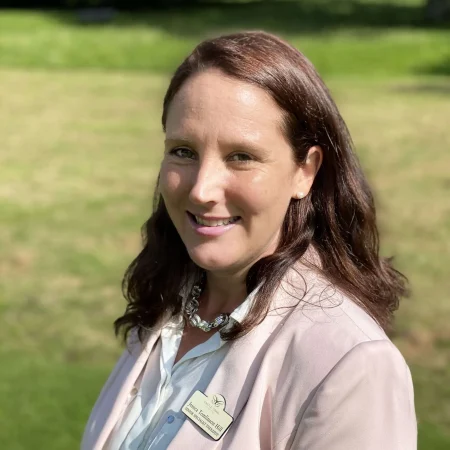

“What I love most about being a therapist is the privilege of being right alongside my patients as they make fundamental realisations, break cycles and have the courage to become who they were created to be.”
Jess has worked for many years in the mental health arena, both in South Africa and Scotland, with a specific focus on addiction. In 2015 she completed her training as an EMDR therapist. Jess also has a special interest in sensory modulation. In 2017 she became a sensory intelligence practitioner, allowing her to help patients understand their unique sensory systems and use this knowledge to optimise their function in day to day life.
Jess graduated as an Occupational Therapist in 2005 from the University of the Witwatersrand in South Africa. In 2011 she obtained her masters degree in occupational therapy in psychiatry. Her thesis was about the role that occupational therapy plays in the treatment of addiction. In researching for her masters degree, she became interested in the intersection between OT and coaching and contributed a chapter to the book “Enabling positive change, coaching conversations in occupational therapy,” published by Canadian Association of Occupational Therapists. The chapter was based on a group coaching program she had created called “Living Life Well.”
When she is not at Castle Craig, Jess runs an online program for moms called Mastermind your Motherhood.


Phillip leads the Extended Treatment Men’s Unit, and plays a key role in maintaining standards and implementing therapeutic procedures within the Castle Craig Extended Treatment facility.
Phillip joined Castle Craig in May 2013, with 20 years’ professional experience in addiction treatment as therapist, service manager and director of services with various organisations.
Phillip is fully accredited with the National Association of Alcohol and Drug Addiction Counsellors (NAADAC), and holds an Advanced Certificate in Counselling, an NLP Certificate, an NVQ4 in Leadership and Management in Social Care, and a registered manager qualification. He is trained in both clinical and management supervision, dual diagnosis/complex needs, presentations and media, serious incidents and risk assessment, and advanced leadership. Phillip specialises in pathological gambling, compulsive sexual addiction, service development, training and regulatory compliance.
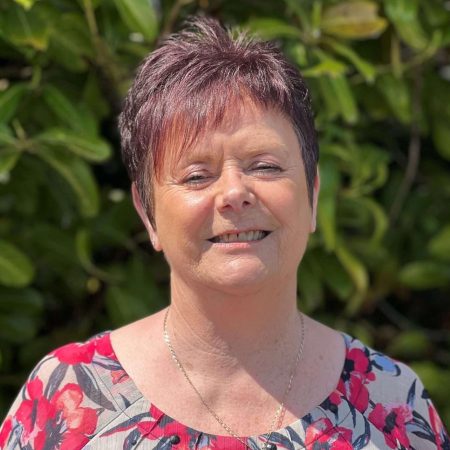
Roseanne leads the women’s Serenity Unit, and plays a key role in maintaining standards and implementing therapeutic procedures within the Castle Craig Extended Treatment facility.
Roseanne joined Castle Craig as a Trainee Therapist in 2004 and gained a Diploma in Addictions Counselling from Castle Craig in August 2005. Roseanne is a certified Reality Therapy practitioner and has obtained the IC&RC qualification. She facilitates the Eating Disorder group and she is also a practitioner member of COSCA (Counselling and Psychotherapy in Scotland).
Before joining Castle Craig Roseanne obtained an HNC in counselling and worked in the Financial Services Industry for 11 years.


Victoria began training and working at Castle Craig Hospital in 2016 and is currently a therapist in the women’s Serenity Unit at Extended Care.
She achieved an undergraduate degree with honours in Psychology and a Masters in Forensic Psychology before working as an assistant clinical psychologist for 18 months.
She is trained in CBT (Cognitive Behavioural Therapy) and previously delivered group and individual therapy before coming to Castle Craig.
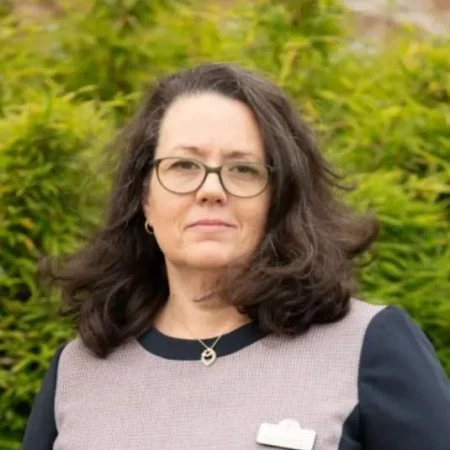
Teri is the Lead Family Therapist of the Family Programme and also runs our Family Recovery Workshop, a two-day workshop for families coming to terms with addiction. Teri also facilitates groups for Eating Disorders and Grief.
Teri joined the staff team at Castle Craig Hospital in November 2017 as a Senior Specialist Therapist. Teri previously worked in the United States for over 15 years as a Licensed Mental Health Counsellor with children and their families who were impacted by substance misuse, domestic violence and mental health issues.
Teri earned her Masters of Science degree in Mental Health Counselling from Nova Southeastern University. She moved to Scotland in 2014 and is a registered member of BACP (British Association for Counselling and Psychotherapy).

Tony Marini is a Senior Specialist Therapist who leads the gambling, gaming and cryptocurrency trading behavioural addiction therapy programme at Castle Craig.
His areas of focus include gambling, gaming, and cryptocurrency trading, with a particular interest in emerging forms of addiction linked to digital technologies.
Tony joined Castle Craig in 2013 and has worked in various therapeutic roles before being recognised as a Specialist Therapist in 2017. He holds a Postgraduate Diploma in Person-Centred Counselling from the University of Strathclyde and a Diploma in Integrated Counselling from Edinburgh College. He is also a registered member of the British Association for Counselling and Psychotherapy (BACP).
Tony brings more than two decades of lived experience in recovery, having personally faced addiction to gambling, cocaine, alcohol, and work. This background informs a therapeutic style rooted in empathy, authenticity, and respect for each person’s unique recovery journey.
He has worked with individuals struggling with a range of behavioural addictions, including patients whose cryptocurrency trading habits have led to significant distress or dysfunction. Tony describes these conditions as “hidden addictions,” and approaches them using established methods such as person-centred therapy and 12 Step facilitation.
Alongside his work at Castle Craig, Tony is a Director at Edinburgh Recovery House Ltd and co-director of the John Hartson Recovery Workshop, through which he engages with community groups and sporting organisations to raise awareness of gambling addiction.
Tony has contributed to public discussion of behavioural addiction through appearances in the media, including interviews with The Guardian, BBC, CNN, Sky News, and others. He has also appeared on specialist podcasts, offering insight into the therapeutic process and the challenges of recovery in a digital age.
Tony Marini speaks to the media regularly about gambling, gaming, and internet disorders.
January 2025 – Tony Marini spoke to The Scottish Sun, to issue an urgent warning to parents regarding kids’ ‘gateway’ habit that could lead to further addictions.
October 2021 – Adriana Hamacher from Decrypt visited Castle Craig to interview Tony Marini and speak to former cryptocurrency gambler, Steven.
September 2021 – Reporter Charlotte Lytton at Daily Telegraph interviewed Tony Marini and reported on the announcement by PayPal that it will launch a dedicated e-coin platform and what happens when online ‘investing’ becomes an addiction.
July 2021 – Investing.com: Trading Vs Gambling: Same Psychology, Different Outcomes.
June 2021 – The Guardian spoke to Tony Marini to cover the risks of speculative trading in cryptocurrencies.
June 2021 – BBC The Nine: The highs and lows of cryptocurrency trading in lockdown
March 2019 – CNN spoke with Tony Marini, a Senior Specialist Gambling Therapist about cryptocurrency addiction and also to Mark, a former patient of Castle Craig.
March 2019 – TheHindu.com ‘Let’s talk de-addiction centres’
May 2018 – Sky News covered the cryptocurrency gambling treatment programme at Castle Craig
2019 – thenextweb – public Q&A session with Castle Craig therapists
February 2019 – Vice Motherboard fimled a news documentary on addiction to cryptocurrency
July 2018 – CryptoQuest Podcast with Tony Marini
Visit our Guide to Cryptocurrency Addiction for information on the risks of cryptocurrency trading addiction and what to do if you think you have an addiction.
References
- BACP Membership Register – www.bacp.co.uk
- John Hartson Recovery Workshop – www.johnhartsonfoundation.com


Aureol Gillan is a qualified Equine Therapist and Senior Specialist Addiciton Therapist at Castle Craig Hospital.
Aureol is highly experienced and has worked in the field of addiction therapy with Castle Craig since 1989.
Aureol is an Equine Assisted Therapy Facilitator and a member of COSCA (Counselling & Psychotherapy in Scotland) and EAGALA (Equine Assisted Growth and Learning Association).
Aureol Gillan in the News:
The Scotsman, Helping Hand to Beat the Demon Drink.
The Herald, Spending Time with Horses: Is this the Perfect Therapy?
Equine Assisted Therapy on BBC Alba, Gaelic Language.
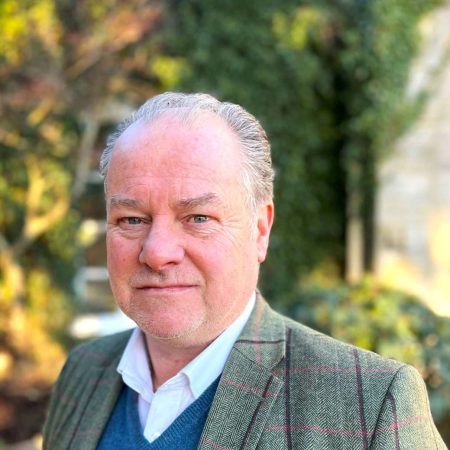

“I am a specialist therapist delivering Individual Counselling, Mindfulness Group Sessions, and Music/Singing Workshops, as well as all the other addiction interventions required at Castle Craig.
My first work in a therapeutic community for alcohol/drug issues was in 1990. I have 18yrs’ experience in the private therapy, life coaching, and EAP counselling worlds. Experience was gained over the years in developing ways to work with depression, trauma, stress, bereavement and anxiety disorders.
I value the educational/healing power that comes from being part of a therapeutic community such as Castle Craig – also peer support is a huge factor here. I am passionate about working in residential communities, it is such a lifting experience.
I studied for an addiction diploma at Leeds University, am an Accredited Drug and Alcohol Counsellor, a Certified Mindfulness Teacher, and have Accredited Professional Membership with The National Counselling & Psychotherapy Society.
As well as engaging in helping patients to become sober and well, I am looking forward to developing music therapy here at Castle Craig. Music is a fabulous way to get in touch with strong feelings and the playful child in us all. Music brings people together and promotes good relations and vibrations!”


“As well as engaging in helping patients to become free of drugs and alcohol, I enjoy practising counselling skills, DBT, and other specialised therapies here at Castle Craig.”
Claudia is one of our addiction therapists delivering group therapy, one-to-one therapy, and family therapy as well as all the other addiction interventions.
She has 8yrs’ experience working for the City of Edinburgh Council in mental health services and began working in a residential setting in April 2022.
Claudia is a Graduated Member of the British Psychological Society (2022), studied for an Honours Degree in Psychology at Queen Margaret University, and also graduated with a Diploma in Social Work at Edinburgh College.
She graduated with an Honours degree in Geography and Teaching at Bucharest University (1997), and between 1999-2009 she was involved in volunteering for a charity organisation in Romania, which focused on supporting children and adolescents in their education. Through professional and personal development, she gained experience in developing ways to work with cognitive impairment, depression, trauma, stress, bereavement, and anxiety disorders.
Her psychology dissertation consisted of an empirical investigation into the perception of intentions and their mechanism for social understanding (connecting with other minds).


Wendy joined Castle Craig in June 2020 as a Recovery Advocate, helping to oversee the Admissions unit.
She is currently working on my COSCA Counselling Certificate and undertaking a degree in CBT at ACT Counselling Services in Glasgow in September 2021. Wendy is on the way to becoming a CBT therapist at Castle Craig.
“As a former patient of Castle Craig, my role takes on a special meaning to me. To see a patient grow and change throughout their time here in treatment is such a wonderful experience. I believe that I bring an honest feeling of empathy and understanding that give the patients a sense of ease and comfort.”


Craig Chalmers is a person-centred therapist originally from Edinburgh. He has extensive experience in engaging meaningfully in a therapeutic relationship with his patients, creating a safe and trusted environment for their growth. Craig holds qualifications from COSCA, BACP, and PERSONA, with additional training in DBT, Trauma, and Mindfulness, specialising in addiction and alcoholism.
Having personal experience in addiction recovery, Craig has significant expertise in working with the 12-Steps program. He has also worked extensively with men who have suffered from childhood sex abuse and other traumas.
As a therapist, Craig brings warmth and passion to his work, ensuring that his patients feel fully heard and understood. He is dedicated to forming genuine connections and helping individuals on their recovery journey.
Outside of therapy, Craig is an avid golfer who enjoys participating in competitions. The game of golf helps him become a more well-rounded person and therapist. Additionally, he values keeping physically fit and spending time in nature.


Ross received his formal education at Glasgow Strathclyde University and is certified by NLP, BACP and COSCA. Every piece of knowledge he imparts is backed by professional learning, combined with his own personal journey. He has previously worked in a residential rehab setting in Glasgow working with Addiction, Trauma & Behavioural Issues.
His approach is simple – it’s all about the person across from him. It’s their journey, pain, and triumph, and Ross is there to walk beside them, every step of the way. His additional interests are in behavioural addictions including social media and gambling alongside mindfulness, the mind-body connection and nurturing simple, healthy practices in every individual he works with.
Ross’s journey from a patient at Castle Craig to becoming a therapist is as personal as it is profound. A Glasgow native, Ross faced his battles with addiction and it was during these testing times, within the walls of Castle Craig, that a new path unfolded before him. He’s not just a therapist because he studied it, but because he’s lived through the trials, the pain, and the triumphant joy of recovery.
He has found solace and strength in physical activity. For him, the gym, the golf course, and the tennis court are sanctuaries where body and soul unite, fostering healing and growth. It’s not just about the physical exertion, but the emotional release, the camaraderie, and the quiet moments of reflection.
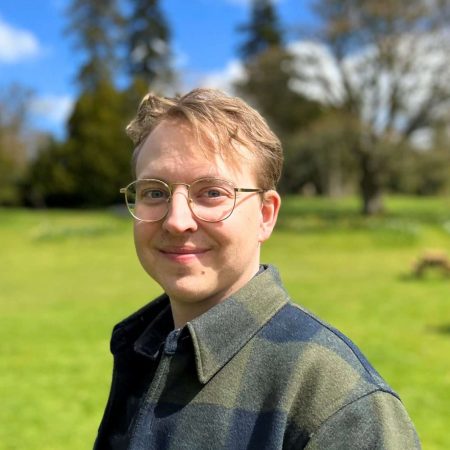

Hans is a licensed addiction professional from the United States, most recently working in London for gambling support provider GamCare. Hans completed his alcohol and drug counselling training at Hazelden – Betty Ford followed by a supervised psychotherapy internship programme at a family therapy centre. His formal education and employment were both in Minnesota, and he is now pursuing further accreditation in the UK and hopes to remain in Scotland long-term.
Hans’ therapeutic approach is mainly informed by previous facilitation of 12 Step and mindfulness-based curriculums, DBT, Bowen Family Systems, IFS, and grounded in trauma-responsive care. He believes wholeheartedly in the transformative power of group therapy and the community experience offered at Castle Craig. His personal life and self-care practices are fuelled by time in the outdoors: hiking, camping, fishing, or rock hunting.


Paul joined Castle Craig in July 2017 as a Recovery Advocate and helps carry the message of hope to patients and that change is possible. Paul’s own experiences have led him to having a sound working knowledge of the 12-step programme, which he says has “humbled me to pass onto our patients that come in to treatment. There is a solution to addiction and I cherish being part of a team who strive to help people change.”


Bethany Bland is a fitness instructor at Castle Craig who has enjoyed a diverse career within the fitness industry. She started as a fitness instructor in Stirling, then expanded her expertise to become a personal trainer, Zumba instructor, and kettlebell instructor at the Hydro in Crieff, where she dedicated six years. Her pursuit of knowledge led her to Greece in 2015, where she trained to teach yoga and Pilates, skills she brought back to Scotland to work in spa hotels.
Bethany’s career took a meaningful turn during the COVID-19 pandemic when she returned to the north of England to assist the NHS with GP surgery safeguarding for children and vulnerable adults. In May, she returned to Scotland to embark on a new professional path, deeply enjoying the role she plays in enhancing the physical and mental well-being of our patients. Passionate about the outdoors, Bethany often spends her free time with her two dogs, embracing the opportunity to teach classes outside whenever the weather permits.
“If you want what you’ve never had, be willing to do things you’ve never done”
Bethany Bland
Clinical Team


Dr Putelyte is one of our specialty doctors at Castle Craig, providing medical care for our patients.
Dr Putelyte has a wealth of experience in treating those with mental health problems and addiction, having previously worked as a ward doctor at the Nightingale Hospital in London and a resident physician at Vilnius University, Lithuania’s leading academic institution.
Geirdre Putelyte is a published researcher with studies published on Research Gate.
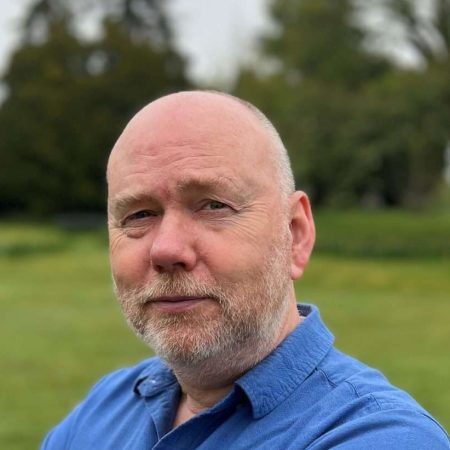

Duncan joined Castle Craig as a Senior Staff Nurse in September 2017. He qualified as an enrolled nurse back in 1989 while working with the Scottish Prison service, where he was awarded the Butler Trust UK Award for his work with vulnerable inmates including addictions.
He later became involved in the first addiction services within the Scottish Prisons and helped introduce courses on reasoning and rehabilitation.
In 1999 he attended the University of Dundee to gain his certificate as a Registered General Nurse and in 2004 he moved into social care management and gained his qualifications in Health and Social Care. He has managed services for young people, learning disabilities and elderly nursing. Laterally he worked as a peripatetic manager supporting care homes over the Lothian and Fife regions.
Locum Clinical Staff
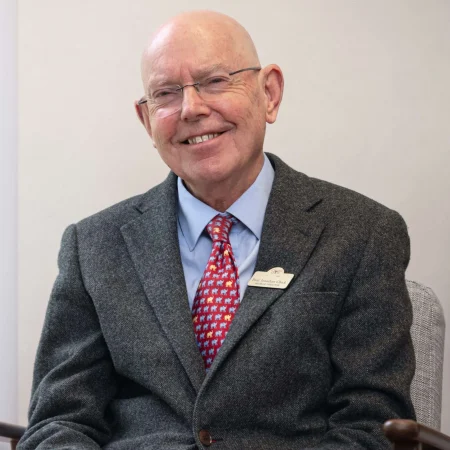
MA (Cantab), MPhil, MBChB, DSc
Professor Jonathan Chick, is a locum Consultant Psychiatrist at Castle Craig.
Professor Chick was the Medical Director at Castle Craig from 2014-2024. He is an eminent Consultant Psychiatrist with a speciality in substance use disorders.
Professor Chick has made significant contributions to the field of alcohol and addiction over the past decades. His interest in alcohol research began during his time at Edinburgh University Medical School, influenced by psychiatric epidemiologist Norman Kreitman. Jonathan later became a consultant psychiatrist at Royal Edinburgh Hospital, a role he held for over 30 years, while also serving as a senior lecturer at Edinburgh University. After retiring from the NHS in Scotland, he continued his academic work as a Professor at Queen Margaret’s University and served as Medical Director at Castle Craig Hospital, where he helped shape Scotland’s alcohol legislation. He received the Max Glatt award in 2012 from the Medical Council on Alcohol to mark his work as someone “who has been working tirelessly in the field of addiction to present a memorial lecture and be awarded the Max Glatt medal.” In 2017 he accepted an Honorary Chair from Napier University.
Professor Chick has been published extensively in peer-reviewed journals. He retired in 2024 from the post of Chief Editor of Alcohol and Alcoholism, the official journal of the Medical Council on Alcohol.
Professor Chick is an elected member of the scientific council of the Societe Francaise d’Alcoologie and is a member of the board of trustees of the General Services Office of Alcoholics Anonymous in the UK.
Professor Chick is also the author of Understanding Alcohol and Drinking Problems, in association with the British Medical Association.
Career
Professor Chick’s career began at Dingleton Hospital in the Scottish Borders.
Dingleton hospital had become famous for its therapeutic community back in the 1950s and 1960s. Jonathan’s stint at Dingleton directed him to visit a project in Paris, where a local Parisian Council (13th Arrondissement) and the sector psychiatrist decided to close down St Anne’s Asylum and use the funds to build a very small new hospital in the suburbs which would provide outpatient and hostel facilities for their psychiatric population.
At the time this was very innovative and attracted the attention of Hugh Freeman, who was then editor of the British Journal of Psychiatry. Jonathan’s research on the 13th Arrondissement Project became his first-ever publication. His experience was formative in that he saw the benefits and pitfalls in trying to manage serious mental illness in the community.
Jonathan’s 13th Arrondissement research also strongly influenced his psychiatric career. His first post was as a senior officer to Dr Bruce Ritson, whose work in Boston mirrored that of Chick’s in Paris. And later, the consultant post taken by Professor Chick at the Royal Edinburgh Hospital brought services much more into the community using local resources.
Edinburgh Medical School
While at Edinburgh University Medical School, psychiatry was always on the horizon, but not alcoholism or addiction. Jonathan’s alcohol interest came from Norman Kreitman, a very clear-thinking psychiatric epidemiologist, who was directing a Medical Research Council (MRC) unit.
Chick’s most memorable alcohol-related moment happened during these years. Jonathan had been an avid reader of The Divided Self by R.D. Laing and suggested that he be invited to speak at the Annual British Medical Association Medical Students Lecture.
Things didn’t go as smoothly as planned. Jonathan helped a very drunk Laing off the train from London and helped him to the lecture theatre, where some of the great minds of Edinburgh University had gathered. Laing had reservations about institutional medicine, and this quickly became obvious from his slurred speech; soon enough several senior members of the psychiatric establishment began exiting in disapproval.
Professor Chick went from the epidemiological unit to the position of consultant psychiatrist at Royal Edinburgh Hospital, a position he held for 31 years. Initially, the consultant post was created to develop outpatient and community services; hence Chick was almost full-time in alcohol-related work.
Drug abuse was much less frequent at the time and it had more stigma than alcoholism, psychiatrists were galvanised to do something in Edinburgh about drug problems following Dr Roy Robertson’s research. Dr Robertson announced to the Edinburgh population that 50% of injecting users were HIV-positive.
This really struck a chord among the middle-classes and a drug treatment service was swiftly established. Jonathan helped with this enterprise while running a separate alcohol service clinic.
Professor Chick had considerable influence on two major streams of work that guided the Scottish Health Service. One was the SIGN Guideline on the management of alcohol misuse and dependence in primary care. Strict clinical guidelines began being formulated in the early 1990s, but by 2002 internationally recognised guidelines were absent for alcohol-related treatment.

This delay was largely precipitated by the view that self-reported statistics was all that the literature on alcohol had to go by, and hard-headed statisticians naturally took issue with this. Jonathan and his team brought along reports on treatment outcomes and studies that had been conducted to present the evidence which prescribed methods to address alcohol problems in primary care.
The second major stream was the Health Technology Assessment for alcohol dependence, and this would now include health economic evaluation. The SIGN guidelines never went into health economics and relative costs of what the guidance was, but the Health Technology Group was specifically interested in cost-effectiveness.
For a full profile of Jonathan Chick, see the following link for an in-depth interview, published in the journal Addiction. http://onlinelibrary.wiley.com/doi/10.1111/add.12603/pdf
Media Appearances
Professor Jonathan Chick has appeared regularly in media interviews on the topic of drug and alcohol addiction.
In this article in The Sun, Record numbers of teenagers need hospital treatment for effects of cocaine abuse, Professor Chick is quoted as saying: “There are a lot of young people who don’t really believe how addictive cocaine can be. It has a very clever action in the brain. It can really hijack the pleasure circuits and then leave them stuck in low gear until the next dose.”
Professor Jonathan Chick spoke to the Scotsman newspaper about alcohol problems in Scotland. He suggested that people need to be more ready to admit they have an alcohol problem. Chick discusses stigma and the psychological barriers to acknowledging alcohol dependency, the role of medications like acamprosate and naltrexone, and insights on treatment methods such as motivational interviewing and family-based approaches.
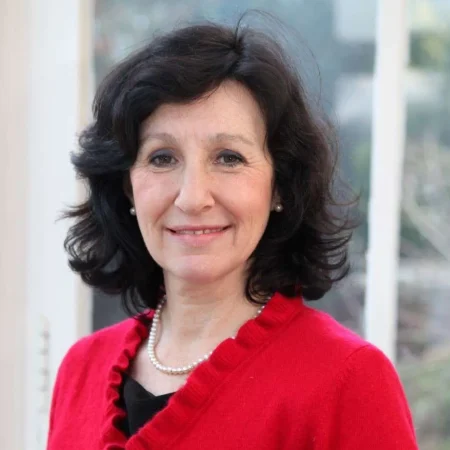

MBChB, DipPsych, MRCPsych
Dr Maria Kelly is a locum Consultant Psychiatrist at Castle Craig.
Formally the Associate Medical Director from 2014 – 2024, Dr Kelly is a distinguished Consultant Psychiatrist, with extensive work in addiction psychiatry and a background in the NHS of general and forensic psychiatry and the psychiatry of learning disabilities.
Her other specialist interests include psychotherapy and family therapy.
Dr Kelly is a BUPA registered Psychiatrist.

Chris ran the Gambling Addiction Programme at Castle Craig for many years. After retiring in 2016 he remained involved with Castle Craig as a consultant therapist and part of the editorial team. He wrote three books about recovery which are sold in our bookshop and are popular with our patients:
Poetry Changes Lives – a page-a-day book of history, poetry and inspiration
The Fun We Had
Pulp Verses – examining writing as a therapeutic tool
He now divides his time between London and the Scottish Borders and is married with three children and five grandchildren.
YouTube
Liverpool Echo
Governance and Admissions
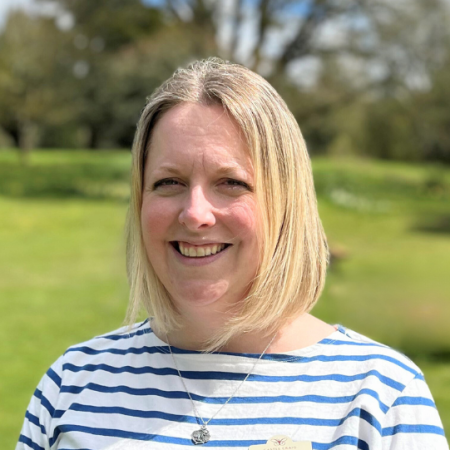

Sara is responsible for the operational management and governance of Castle Craig Hospital, leading our ancillary staff to support the service delivery. She has previously worked in programme management at Healthcare Improvement Scotland, specifically on the establishment of NHS acute and mental health hospital inspections” and expanding the regulation of independent healthcare in Scotland.
Her areas of expertise focus on governance, regulatory compliance, complaints management, and project management. Being able to see firsthand how her work contributes to the delivery of the Castle Craig programme is a real motivation on a day-to-day basis.
Outside of work, Sara enjoys spending time with her husband and two children, ideally out and about in the surrounding area or back home in the Lakes.

As the HR Officer for Castle Craig, Tracy’s passion is people.
Originally from England but having spent most of her life in South Africa, Tracy has recently relocated back to the UK and joined Castle Craig early in 2022.
New to the world of addiction treatment, Tracy’s past experience as both an HR Practitioner and HR Manager in South Africa has been spent within the construction, film production, and aviation industries.

Andrei has worked at Castle Craig since 2014. He spent a number of years working with charities in South-East Asia after graduating from Medical School as a Dentist. Andrei is committed to promoting the welfare of others and does so through his work in the admissions department as well as communications and marketing and any other tasks as directed by the senior management
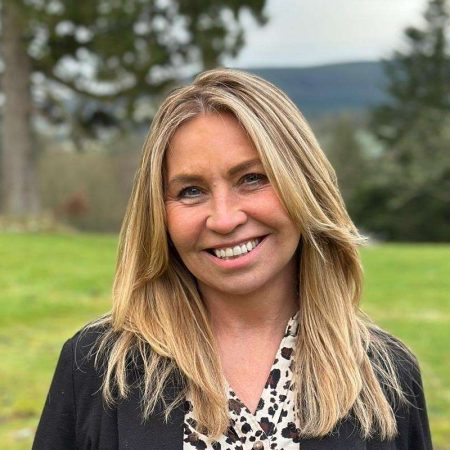

Kim has a position with CATCH Recovery, our outpatient clinic, as patient liaison for continuing care. She joined the team at Castle Craig in 2021 as a Recovery Advocate and has lived experience of recovery. She brings her experience and passion into the team who helped to change her life and the lives of many who suffer from the disease of addiction.
Services

Donald joined Castle Craig in July 2013 as Client Service Manager, having previously held a number of administrative positions within the NHS in London, and then moving to South Africa, where he was Manager of Riverview Manor, a South African addiction treatment centre, from 2011 – 2013.
Donald has a BSocSci (Psych) Degree from the University of Natal.
Four Legged Friends

Who Works at Castle Craig?
The staff who work at Castle Craig form a multidisciplinary team, to care for our patients. Our staff come from the UK, across Europe, the United States, and further afield. Our international team staff help ensures diversity that reflects the global reach of Castle Craig.
Board of Directors at Castle Craig
- Dr. Margaret Ann McCann, MB BCh, BAO, Co-Founder
- Dominic McCann, MA (Hons), Chief Executive Officer
- Dr. Michael G McCann, MD, MA, DIH, MFOM
- Victoria McCann, BSc, MA
- Daniel Gouws, MBA, CIMA, CFBM™, Dip.Bus
Castle Craig Medical Director
- Dr Peter McCann, MBBS, MSc, MRCPsych, is the Medical Director at Castle Craig. He is a Consultant Psychiatrist who directs the medical treatment programme and oversees the head nurse and nursing department and monitors the therapies and therapists.
- Dr McCann conducts regular medical work, including patient consultations, assessments, case reviews and discharge planning.
Consultant Psychiatrists
- Castle Craig employs psychiatrists who specialise in addiction treatment.
- The psychiatrists at Castle Craig manage the medical assessments & personalised care plans of patients. They assess detoxification requirements and prescribe medication.
- The psychiatrist joins the multidisciplinary team meetings and patient discussions with the rest of the medical and clinical team
- The Consultant Psychiatrist continually monitors all patients’ physical and mental health status throughout treatment and approves all discharge plans.
Certified Addiction Therapists
- Addiction therapists deliver therapy that targets addiction and any underlying causes of addiction. The therapies that addiction therapists deliver include psychosocial talking therapies including specialist therapies, 12 Step facilitation and complementary therapies in groups or individually.
- All patients are assigned a focal therapist to guide them through their individualised treatment plan.
- All our therapists have IC&RC accreditation, BACP and COSCA accreditation, university degrees or diplomas in addiction counselling. Others have qualifications in trauma therapy, EMDR and CBT.
Specialty Doctors
- The resident specialty doctors at Castle Craig ensure dedicated medical coverage 24 hours a day, seven days a week. They often stay onsite overnight or live a short distance away and are immediately available to deal with any medical emergencies that may arise.
Nursing Team
- The 24/7 nursing team at Castle Craig provide nursing care and monitor the physical and mental health needs of patients throughout the treatment. The nurses supervise detox and distribute medication. Our nurses respond to any immediate needs – either health-related or emotional.
Other Permanent and Consulting Staff Include:
- EMDR and CBT-trained psychotherapists
- Occupational Therapist
- Recovery Advocates
- Fitness instructors
- Complementary Therapy Facilitators
- Equine Therapy Facilitator
- Admissions team
- Administration and support staff













